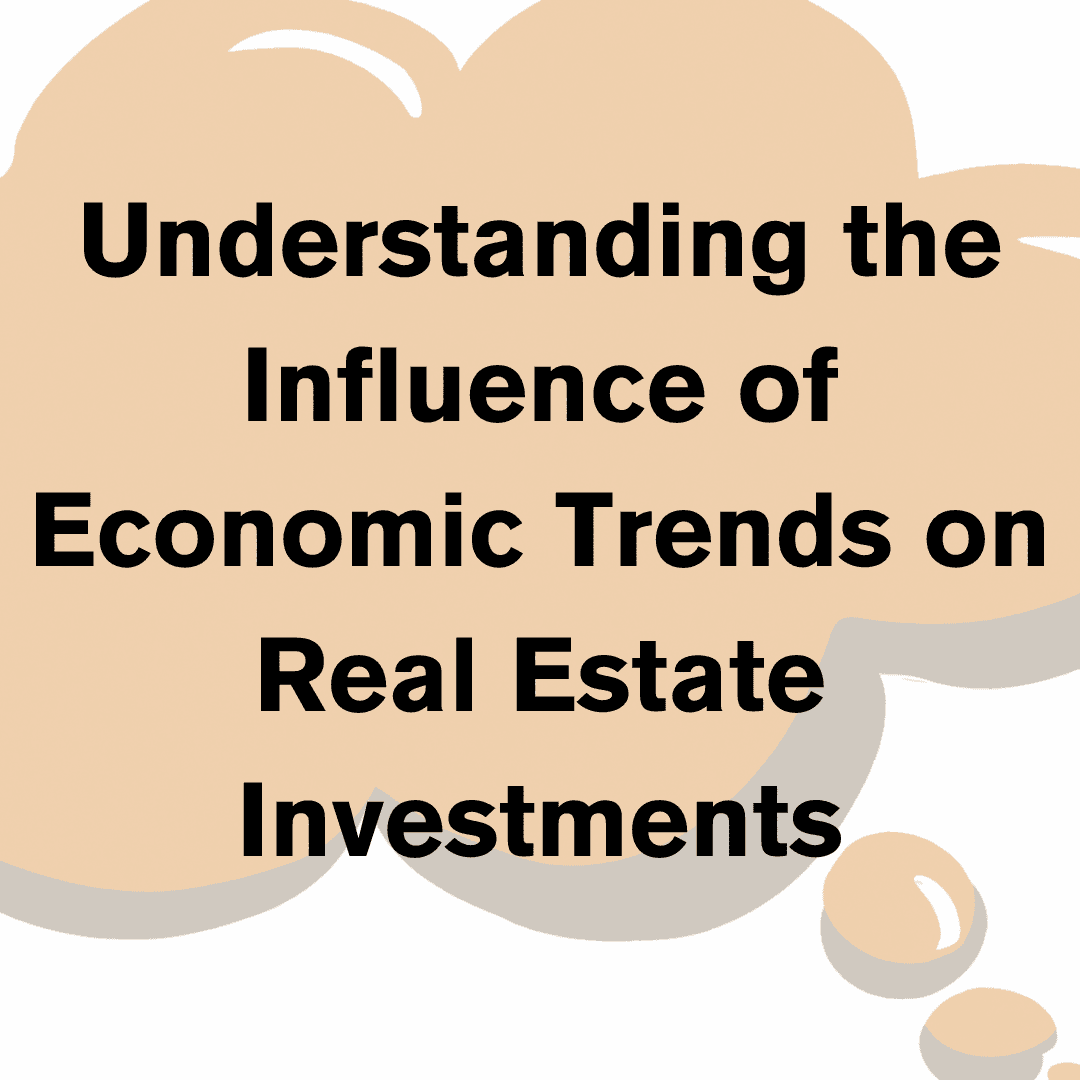
August 21, 2023 | Scott Molluso and Kristina Mazzella
Introduction
The real estate market is significantly influenced by a myriad of factors. Prominent among these are economic trends—powerful forces that shape the landscape of real estate investments. This article delves into the profound influence of economic trends on real estate investments, empowering investors to navigate the market with heightened insight and foresight.
Economic Trends and Real Estate: An Intertwined Relationship
The relationship between economic trends and the real estate market is intricately interconnected. Economic indicators such as GDP growth, employment rates, interest rates, and inflation can significantly impact property values, rental demand, and investment returns.
Decoding the Economic Indicators: Their Direct Repercussions on Real Estate
GDP Rates: Gross Domestic Product (GDP) measures a country's economic health. GDP growth often signals a thriving economy, which can stimulate demand for real estate, drive property values, and bolster rental rates.
A strong GDP growth can also attract investors, further fueling the real estate market's growth.
Employment Rates: Employment rates directly influence people's ability to rent or purchase properties. High employment rates often translate to higher demand for real estate, which can push up property prices and rental rates. Therefore, Communities with robust job markets can be especially attractive to real estate investors, as they can expect high rental demand and low vacancy rates. A decrease in employment can lead to reduced housing demand, declining property values, and increased vacancies in both residential and commercial properties.
At EPOC Real Estate, we analyze market home price appreciation forecasts to determine where rental rates will increase over time. Some of the main drivers that we see leading to the price appreciation forecasts are high employment and population growth. As landlords we have the opportunity to increase rental rates due to higher demand, leading to positive cash flow from our investment decisions. Positive demand leads to higher home sales as well, resulting in appreciation of our property values.
Interest Rates: Interest rates exert a significant influence on the real estate market. Low interest rates can make mortgages more affordable, stimulating demand for properties. Conversely, high interest rates can dampen property demand, as potential buyers or investors might find it costlier to secure financing. If people aren’t buying homes, they are renting them so high interest rates lead to high rental prices.
At EPOC Real Estate, we are constantly adjusting to changing interest rates. As interest rates have risen, and home buying has slowed, more people are turning to rental properties which in turn pushes our rent rates higher. However, if interest rates rise too quickly it can decrease our purchasing power to acquire new homes. Thus it is important for EPOC to find an equilibrium between these two factors.
For real estate investors, understanding interest rate trends can guide decisions on when to buy properties and how to structure their investment financing.
Inflation: Inflation can affect real estate investments in multiple ways. As a general rule, property values and rental rates tend to rise with inflation. This can protect real estate investors against purchasing power loss and provide them with a hedge against inflation.
However, high inflation can also lead to higher interest rates, which might increase the cost of financing real estate investments.
As inflation rises, EPOC Real Estate could decrease the amount of homes that we purchase but we have a portfolio of homes that have been and will be appreciating for the next 7-10 years. Over that course of time, the value of our properties will increase because the value of the dollar has increased. At EPOC Real Estate, market dynamics are more than just data points—they're the very fabric of our decision-making process. For instance, a promising employment trajectory and population growth are indicators we've identified as precursors to property appreciation. This, in turn, affords us the luxury of adjusting rental rates in response to demand, paving the way for enriched investment outcomes. Moreover, as interest rate trends oscillate, they serve as signposts, assisting us in charting our investment paths and financing strategies.
Charting Your Course: The Takeaway
Real estate, when distilled to its essence, is an ever-evolving dance with economic trends. These rhythms, often subtle yet profoundly impactful, sculpt the market, shape property valuations, and forge the path of investment returns. Immersing oneself in this symphony equips real estate aficionados—both investors and agents—with the acumen to sail smoothly, even when the seas get choppy.
If you found this article informative, consider sharing it with your network. The real estate market, much like a puzzle, becomes clearer as we gather more pieces of knowledge. Together, we can contribute to a more enlightened and successful real estate investment community.
Disclaimer: This piece is crafted for informational endeavors only and doesn't constitute financial or legal counsel. While efforts are made to ensure accuracy, we recommend consulting professionals prior to making significant financial choices.
scott@epocre.com
kristina@epocre.com
